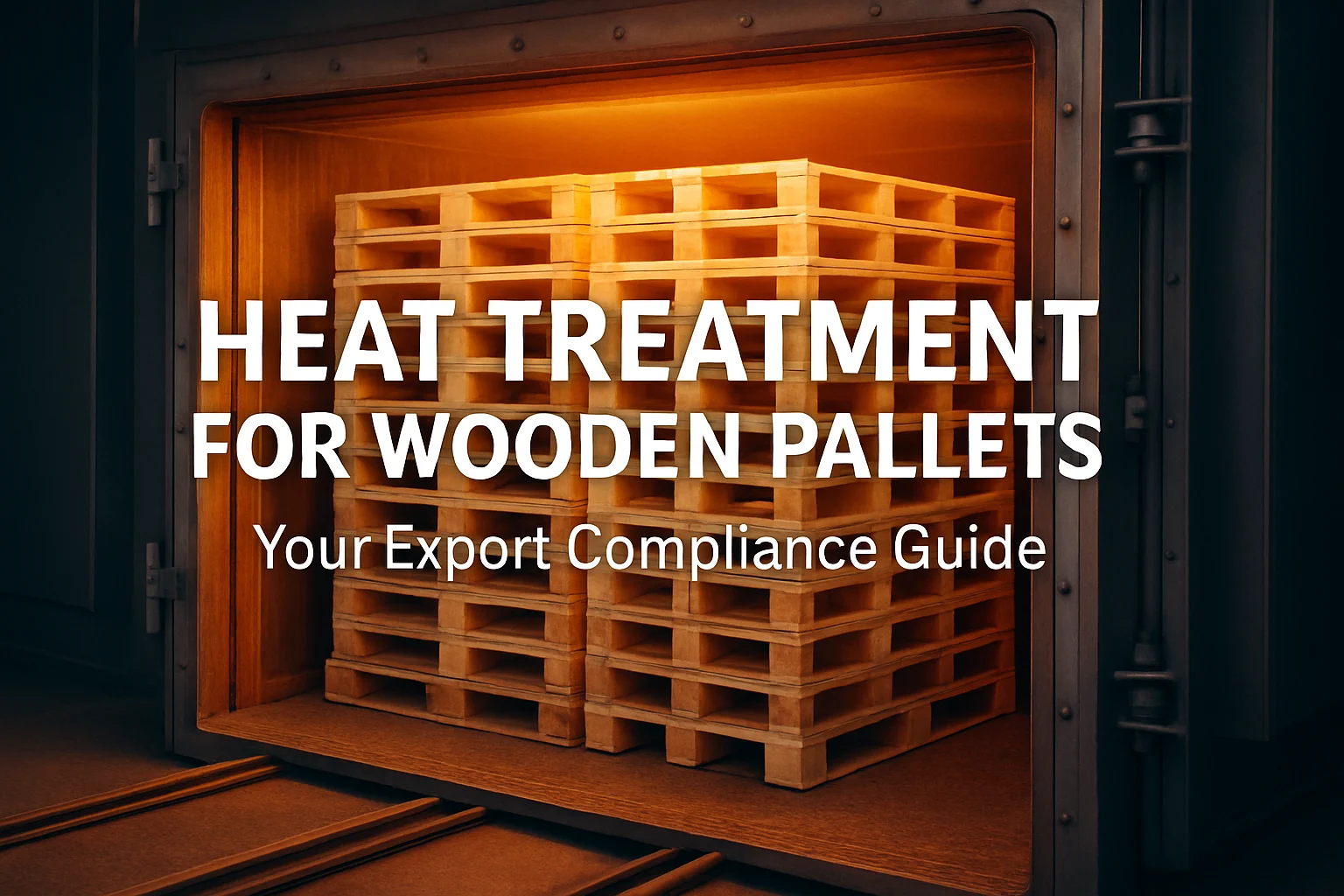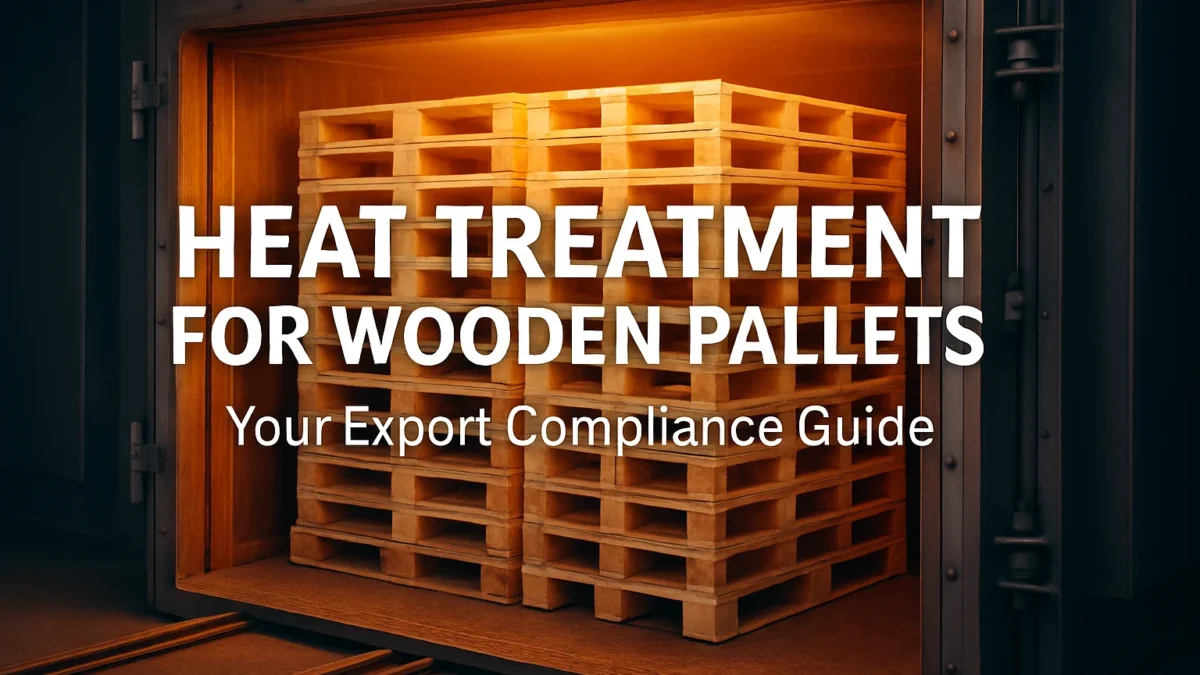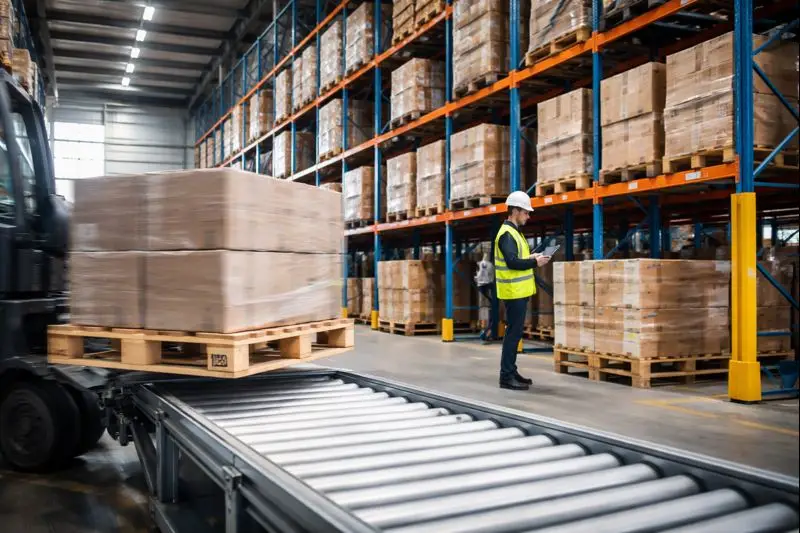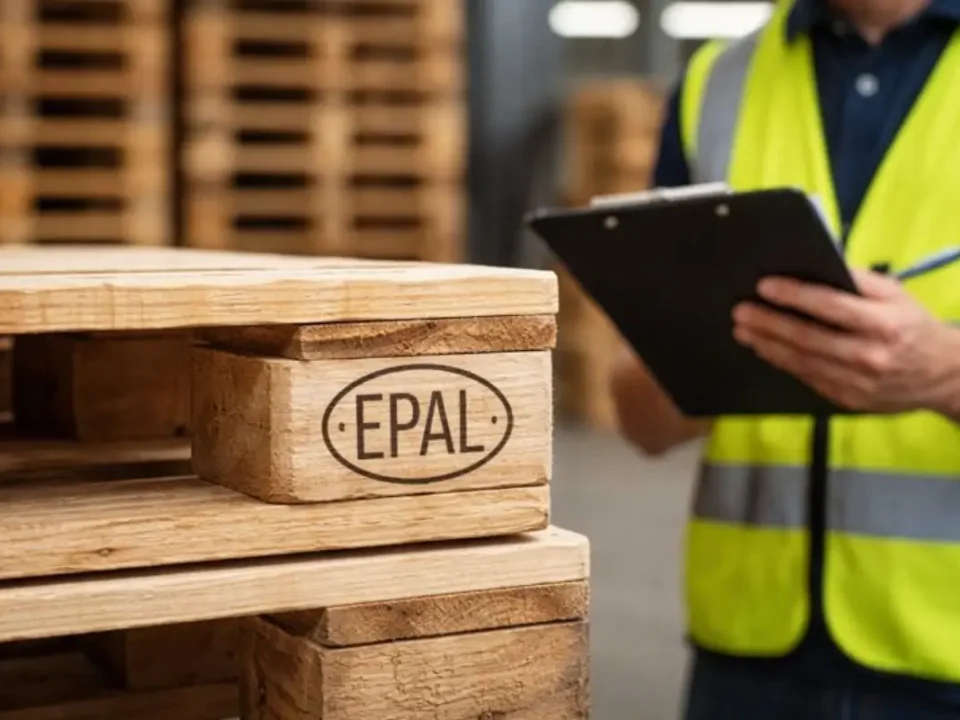
EPAL Pallet Sizes: Complete Guide with Dimensions
June 21, 2025
How to Choose the Right Wood for Heavy-Duty Pallets
July 20, 2025The Science Behind Heat Treatment for Wooden Pallets
Heat treatment for wooden pallets is a key step in making them safe for global trade. The process uses heat to kill pests and stop the spread of plant diseases. It also makes pallets meet export rules like ISPM 15. Without heat treatment, your shipment can face delays. It may also lead to fines or rejection at borders.

The FAO/IPPC wood packaging material guide explains why these rules matter. Their standards protect crops, forests, and economies from invasive pests. By following these guidelines, businesses can ship with confidence. They also meet international compliance rules.
Why Heat Treatment Matters in Global Shipping
Heat treatment keeps pests and diseases out of wooden pallets. It stops harmful insects from spreading across borders. Many countries must this process before they accept wooden packaging.
Without it, your shipment may be delayed or turned away. In some cases, you could face extra costs or fines. Heat treatment protects both your goods and the environment.
Understanding the ISPM 15 Heat Treatment Process
ISPM 15 is a global rule for wooden packaging. It sets the steps for making pallets safe for shipping. Heat treatment is the most common method. It uses heat, not chemicals, to make wood pest-free.
Temperature and Time Requirements
The wood must reach a core temperature of 56°C. It must stay at this heat for at least 30 minutes. This is enough to kill harmful insects and larvae. The process works for pallets, crates, and other wooden packaging.
How Heat Kills Pests Without Chemicals
Heat breaks the life cycle of insects. It destroys eggs, larvae, and adult pests in the wood. Because it uses no chemicals, it leaves no harmful residue. This makes it safer for workers and the environment.
Difference Between Heat Treatment and Fumigation
Fumigation uses gases to kill pests. It can be faster, but it uses chemicals that may be harmful. Heat treatment is safer and meets the same global standards. Many countries now prefer heat treatment over fumigation.
Key Wood Packaging Material Standards
Wood packaging for export must meet set global rules. These rules keep pests from spreading between countries. They also ensure the wood is safe to handle and strong enough for shipping.
The ISPM 15 standard is the main guide. It explains how to treat, mark, and use wooden packaging. This includes pallets, crates, boxes, and dunnage. Heat treatment is the most common method, but fumigation is also allowed in some places.
Markings are important. They show that the wood has been treated and approved for export. This sentence is too long and complex. Use shorter sentences and simpler words. Without this mark, many shipments will be rejected.
By following these standards, businesses avoid delays and keep goods moving. They also protect ecosystems from harmful pests.
Pallet Heat Treatment Guidelines for Exporters
Export rules can vary from country to country. Still, most follow ISPM 15 standards. This means your pallets must be heat-treated and marked before they can cross borders.
Always work with a certified treatment provider. They will ensure the right temperature and time are met. This keeps your pallets safe from pests and ready for inspection.
Check the stamp on each pallet before shipping. The mark should be clear and match official records. Faded or missing marks can cause delays.
Keep a record of treatment certificates. Customs officers may ask for proof. Having these documents ready makes your shipment move faster.
International Pallet Compliance Rules
When shipping across borders, rules are strict for wooden packaging. Countries enforce them to stop pests and diseases from spreading.
Pallets must meet the treatment and marking standards set by ISPM 15. This is recognized by most major economies. If your pallets do not meet these rules, they can be held, returned, or destroyed.
Some regions have extra requirements. For example, they may demand more inspections or specific markings. Always check the rules for your destination country before shipping.
Following these rules protects your goods and your reputation. It also keeps global trade safe and efficient.
Conclusion
Heat treatment for wooden pallets is more than just a rule. It is a safeguard for your goods and a need for smooth global trade. By meeting these standards, you reduce the risk of delays and protect supply chains.
Compliance is not only about avoiding penalties. It also builds trust with clients and partners worldwide. Treated pallets show that your business values quality and responsibility.
Our team ensures every pallet meets ISPM 15 guidelines. You get products ready for international use without the worry of border rejections.
Contact us today. Get expert help and certified pallets delivered to your location.




